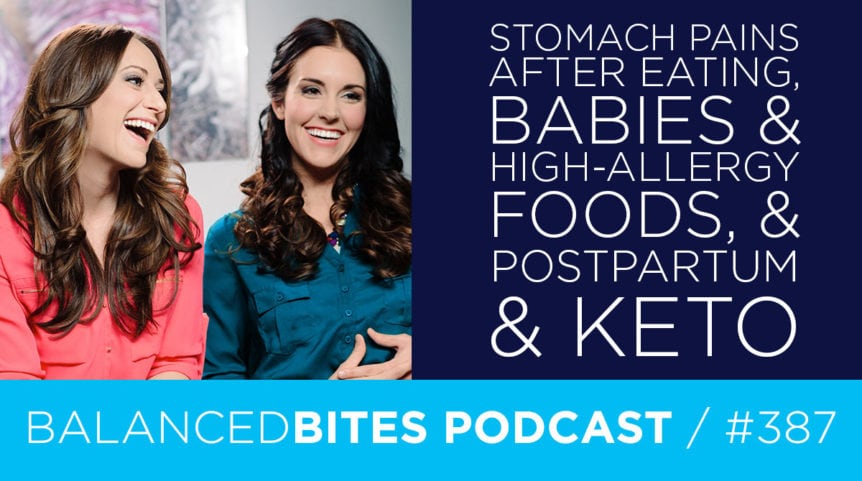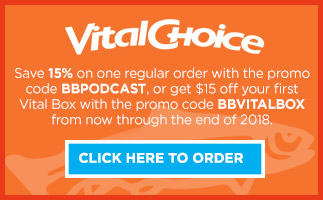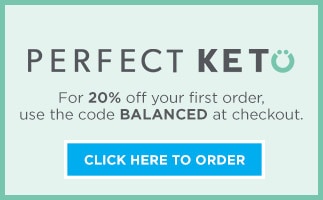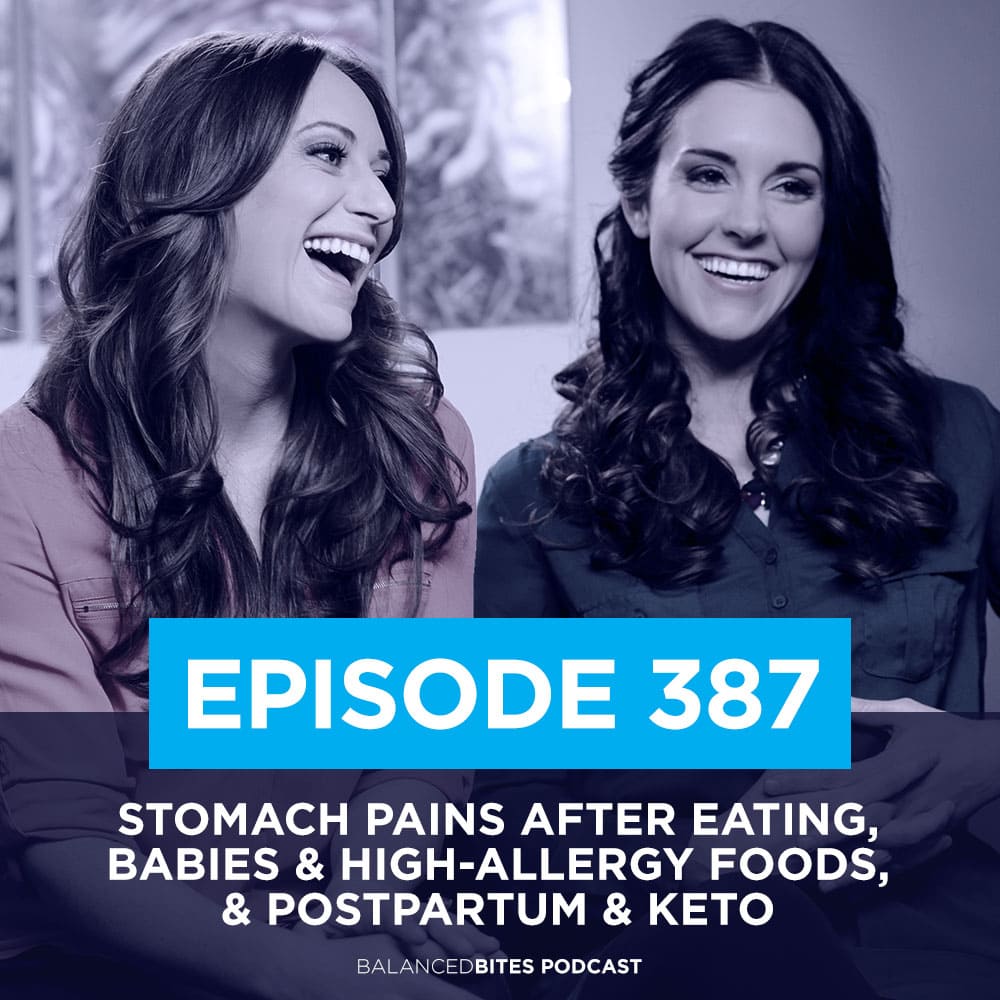 Topics
Topics
- News and updates from Diane & Liz [1:58]
- Balanced Bites Meals
- Keto Quick Start tour
- Liz's Disney trip
- What we had for dinner last night [8:02]
- Stomach pains after eating [13:11]
- Introducing baby to high-allergenic foods [20:46]
- Keto and postpartum [24:37]
The episodes are also available in iTunes, Spotify & Stitcher.
![]()
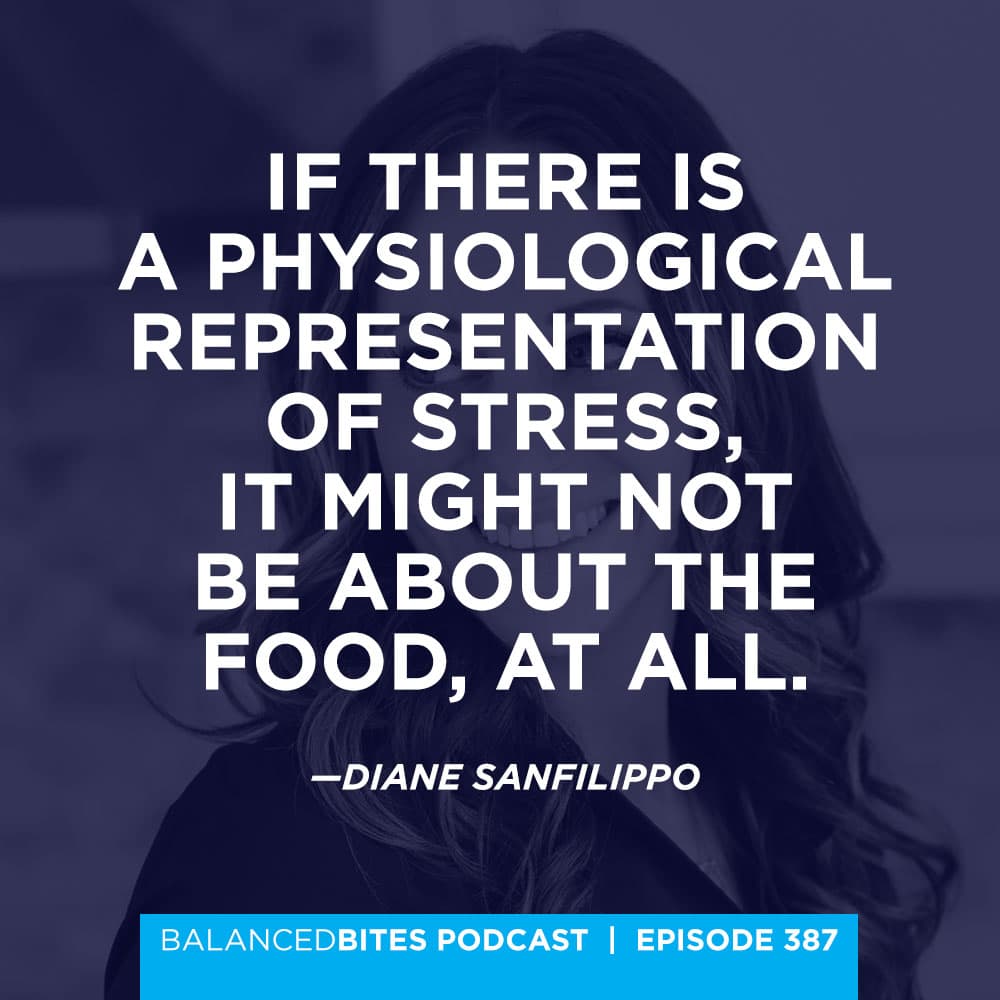

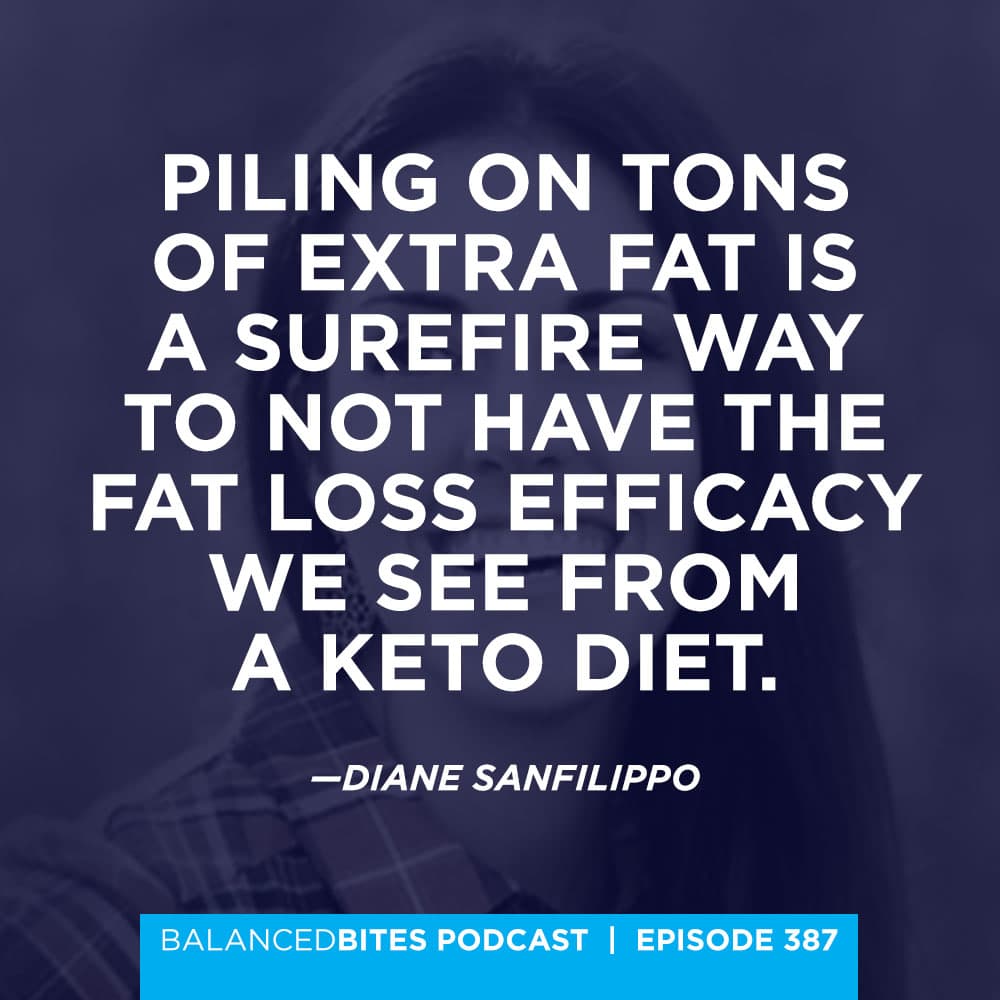
You’re listening to the Balanced Bites podcast episode 387.
Diane Sanfilippo: Welcome to the Balanced Bites podcast. I’m Diane; a certified nutrition consultant, and the New York Times bestselling author of Practical Paleo and the 21-Day Sugar Detox. My newest book, Keto Quick Start, released on January 1, 2019. I live in San Francisco with my husband and fur kids.
Liz Wolfe: I’m Liz; a nutritional therapy practitioner, and author of the Wall Street Journal bestseller Eat the Yolks; The Purely Primal Skincare Guide; and the online program Baby Making and Beyond. I live on a lake in the mystical land of the Midwest, outside of Kansas City.
We’re the co-creators of the Balanced Bites Master Class, and we’ve been bringing you this award-winning podcast for more than 7 years. We’re here to share our take on modern healthy living, answer your questions, and chat with leading health and wellness experts. Enjoy this week’s episode, and submit your questions at http://blog.balancedbites.com or watch the Balanced Bites podcast Instagram account for our weekly calls for questions. You can ask us anything in the comments.
Remember our disclaimer: The materials and content within this podcast are intended as general information only, and are not to be considered a substitute for professional medical advice, diagnosis, or treatment. Before we get started, let’s hear from one of our sponsors.
Liz Wolfe: Today’s podcast is sponsored by Vital Choice wild seafood and organics. America’s leading purveyor of premium, sustainable seafood and grass-fed meats, and a certified B corporation. Their popular Vital Box program delivers top customer favorites directly to your door. Any mix of wild salmon, fish, and shellfish that you prefer. Vital Choice offers a wide range of wild seafood; from top shelf Alaskan salmon and halibut, to Portuguese sardines and mackerel. Plus, mouthwatering grass-fed meats and poultry. Be sure to save 15% on one regular order with the promo code BBPODCAST or get $15 off your first Vital Box with the promocode BBVITALBOX from now through the end of the year.
1. News and updates from Diane & Liz [1:58]
Liz Wolfe: Alright. Hi Diane; what’s happening over there by the Bay?
Diane Sanfilippo: Oh, hey. So, we’re airing on Valentine’s Day.
Liz Wolfe: Aww. I’m in Disney World right now.
Diane Sanfilippo: {laughs} I’m about to be headed to Vegas. Because the next tour stop is Las Vegas, Denver, Kansas City with you, and the Phoenix. That’s kind of what’s up over here. Next stops.
And BB meals. {laughs} We’re recording this a little bit ahead of time, you guys. I always want to give you updates, and then I’m like; well I don’t know what the update exactly will be. But if you have been waiting for Balanced Bites meals, they should be available. So if somehow you missed the note, head to www.blog.balancedbites.com. You’ll be able to find the meals there. Keto meals were the first 10. We’ve got paleo meals that, if they’re not out now, they’re coming soon. So stay tuned on that. And more to come. So I’m super excited about it. It’s kind of like a decade in the making.
I think we’re going to do one of those belated 10-year comparison photos of where Balanced Bites was 10 years ago in terms of meals, and where we are today. Super excited about that. But yeah, those are some of the big updates.
I think one other thing I want to throw out there, because we are getting to mid-February here. If you’ve been curious about becoming a 21-Day Sugar Detox coach, stay tuned. We have a Facebook group that’s a coach’s interest group. And if you are interested in that; you want to be able to help people. You want to be listed in our database that’s fully searchable by location and by specialty. And you have really wanted to have a focus, and also a community, of other coaches and like-minded practitioners who are just really making their businesses work. Then check that out.
I know we have some folks who, honestly, love it to have the sugar detox to coach maybe a couple of times a year. But also to just have that community of people who are doing something with their certification. I think you and I both know lots of folks that come out of their nutrition programs, and all the best intentions. But sometimes don’t make it happen. And what we really aim to do with that coach’s program is give you kind of a business in a box and help you really make something out of the certification that you have.
Anyway, stay tuned for that. The 21-Day Sugar Detox coach’s program. Or you can go to 21DSD.com for more information on that. What’s going on over by the lake?
Liz Wolfe: My life just doesn’t move this fast. I don’t have a whole lot of exciting stuff over the last episode. As you said, we record this a little bit in advance. So as you are listening, I am probably somewhere in the Magic Kingdom. I will say I have always kind of felt like the whole idea of Disney as my nightmare.
Diane Sanfilippo: I made a cringey face just now.
Liz Wolfe: I know. So many cringey; but you know what? I think my daughter is going to just find it unbelievably magical and that’s going to make it worthwhile for me. So I’m just going to try not to think about; these are just people in costumes. And concrete. And germs.
Diane Sanfilippo: {laughing}
Liz Wolfe: And all that. {laughs} I’m really going to try to enjoy it.
Diane Sanfilippo: I feel like I want you to start a new blog that’s just like; the Six does this. Like, the Six goes to Disney or something. Because all the things that you highlight as the things that are crazy or weird; or it’s hard to suspend disbelief over. So interesting to me. Because the things that I find; I don’t know, not relaxing or not enjoyable about it would be so different. So I feel like that would be so funny. But maybe it should be an anonymous blog? I don’t know.
Liz Wolfe: I probably need to learn more about being a six before I do that. But; I mean, it will be great. I don’t know why, but for some reason; maybe I’m very attuned to the reality of things. So it is hard for me to just focus on the magic when I know how hard people are working behind the scenes. And they’re in these sweaty, itchy costumes. And I’m just wondering; do they get paid enough? {laughs} Are they eating a good lunch? Is everybody here happy? Who here is suffering?
I don’t know. Maybe I am a highly sensitive person {laughing}. I don’t think I am. I don’t think I’m that self-aware. But I really do just think about; when I’m a crowd of that many people doing that many different things, I am in some way worried about every single person around me. It’s just strange. It’s just strange, and it’s exhausting.
Diane Sanfilippo: I hear you. I do.
Liz Wolfe: And also; concrete jungle. I just have this idea of just a bunch of people waiting in line for 3 hours for a ride.
Diane Sanfilippo: I don’t think it’s like that anymore.
Liz Wolfe: Well they do fast passes, for sure.
Diane Sanfilippo: They have different; yeah.
Liz Wolfe: So that will be good.
Diane Sanfilippo: You know, back in our day, when we would wait in line for 90 minutes to see it’s a small world. Kids today, they don’t have to deal with the struggles.
Liz Wolfe: Kids today; they’ve got Fast Pass bracelets. And I do have to say, the last episode I talked about my new Uppababy Minu stroller that I basically bought for this trip. And it’s almost kind of like my; well, if I have to go to Disney then I’m getting this new stroller. Which none of that even makes sense {laughs}. But for some reason, I’m like; I’m really excited to use our new stroller at Disney. Because there’s probably people that have been to Disney 50 times that are like; don’t bring your own stroller! But I’m bringing my own stroller. And that’s going to be fun for me. So it will be great. It will be magical.
Diane Sanfilippo: Make it happen. Can’t wait to see pictures and a recap and hear how it goes.
Liz Wolfe: Lord, bear me strength.
Diane Sanfilippo: {laughing}
2. What we had for dinner last night [8:02]
Liz Wolfe: Alright. Let’s talk about last night’s dinner.
Diane Sanfilippo: Well, for people who follow on Instagram, they’re really going to know when we recorded this. If they’re truly paying attention, based on what I ate last night for dinner. Because I can’t not be honest, because I can’t make something up. So, in case anybody is ever wondering; my ability to lie is really bad. Because I’m just not that creative, so I’m just going to tell you what I had for real last night.
Last night, we had coffee rubbed hanger steak. Because I actually went grocery shopping yesterday. And if I buy fresh meat from the butcher counter, we try and eat it pretty quickly. I try not to forget about it in the fridge. Because that stuff is expensive.
So I did coffee barbecue rub; Balanced Bites spices. A little plug for my spices. And then did roasted cauliflower in the oven. Like a whole head of cauliflower. And I used a new spice blend that I have not yet named, and is not yet in production. But it’s delicious. On the cauliflower. So that’s what we had.
And funny; somebody on my Instagram was like; you know what? I forget that cauliflower is a vegetable. And I told her; that’s because we lie to ourselves and replace starches with it. So we start to think of it as starch, when it is a vegetable. So if you have a meal that’s meat and cauliflower, it is a vegetable. You don’t need to have another vegetable if you don’t want to.
So anyway. That was that hanger steak and roasted cauliflower. And it was delicious!
Liz Wolfe: Why would you lie; what was the whole preface to that about? You were just going to tell the truth; that you had hanger steak?
Diane Sanfilippo: No. Just, if people follow me on Instagram, which I think a lot of listeners do.
Liz Wolfe: Ohh.
Diane Sanfilippo: Then they be like;
Liz Wolfe: No you didn’t. {laughs}
Diane Sanfilippo: Or like; if it’s February, today; obviously we don’t record on the day that it airs. But we don’t usually record this far ahead. But since I’m touring. So, it’s like; they’ve seen it, and I can’t just make …
Liz Wolfe: It wasn’t any particular shame about hanger steak, or whatever. {laughs}
Diane Sanfilippo: No, oh no. It was amazing. No, it was just more like; it’s not surprising, and they did see it. I don’t know, Liz.
Liz Wolfe: I don’t know.
Diane Sanfilippo: Don’t ask me such questions.
Liz Wolfe: I’m so sorry.
Diane Sanfilippo: But it was good. And I really enjoyed it. And I wish I could eat it all over again, because hanger steak is definitely a favorite. And with a coffee rub; it’s, yeah.
Liz Wolfe: Sounds good. This is why you should stay at my house when you're in Kansas City, so you can cook me some hanger steak.
Diane Sanfilippo: {laughs} I see what’s happening, Liz. I see.
Liz Wolfe: Yep.
Diane Sanfilippo: Ok.
Liz Wolfe: Ok. Well last night I had shredded chicken and peppers. Nothing fancy.
Diane Sanfilippo: But you could describe that differently and it would sound really fancy.
Liz Wolfe: {laughs}
Diane Sanfilippo: So I could have just said; steak and cauliflower and it wouldn’t sound that fancy. Put some marketing into it, Liz! You’ve got to romanticize it a little bit.
Liz Wolfe: I carefully separated the breast from the bone of the Campo Lindo Farms chicken breast, and rested it gently in the Instant Pot with a modicum of broth, peppers, and onions. I slowly closed the top; I can’t.
Diane Sanfilippo: {laughs}
Liz Wolfe: {laughing}
Diane Sanfilippo: But you cooked chicken in an Instant Pot? Or it was already cooked.
Liz Wolfe: No, I cooked it in the Instant Pot.
Diane Sanfilippo: People want to know this, Liz.
Liz Wolfe: Well I don’t know if I’m doing it right.
Diane Sanfilippo: People who don’t cook want to know.
Liz Wolfe: This could be the exact wrong way to do it, I don’t know. So I cooked the chicken in the Instant Pot, and then I had sautéed the onions and peppers already, and then I put them in there for a couple extra minutes. And then you shred the chicken, and you kind of try to make the flavors mush together. I don’t know.
Diane Sanfilippo: Liz. You really sell yourself short on sharing how you put food together. Because even if you might not…
Liz Wolfe: How well I’m able to press buttons?
Diane Sanfilippo: Yeah! You might not consider it cookbook level cooking, but it’s important for people to know that that’s a legit way to get food on the table.
Liz Wolfe: Yeah. Yeah. I probably should share more.
Diane Sanfilippo: Give yourself a gold star.
Liz Wolfe: But generally, it’s not hard for me; so I go to the gym, right, and I’ll do a lot of Instagram stories of what I’m doing at the gym. Because I’m not going to leave the house without my phone. Then I get there, the trainer takes the phone, and he takes the videos. But when I’m home, 90% of the time I have no clue where my freaking phone is. {laughs} So.
Diane Sanfilippo: You don’t have to post it. But, I think people like to hear.
Liz Wolfe: Be more descriptive?
Diane Sanfilippo: Yeah. Because it’s real. There’s nothing wrong with it. You think if it’s not; “I write this recipe for a cookbook” that people aren’t curious or don’t want to know. But actually that’s how most people put their meals together.
Liz Wolfe: Yeah.
Diane Sanfilippo: The stars are just like us. {laughing}
Liz Wolfe: {laughs} Oh my god.
3. Stomach pains after eating [13:11]
Liz Wolfe: Ok. So today we’re going to chat about a few things, including mystery stomach pains. We will talk about introducing common allergens to babies. And we will see if we have time for another question about postpartum and keto.
First question. “Hi Diane and Liz! I’m such a big fan of your podcast. I’ve been listening to it for a few years now, and appreciate all the knowledge you feed your listeners. I have a couple of questions I know you will be able to answer. I’m 29 years old, and I’ve been struggling with stomach issues ever since middle school when I vividly remember after lunch I would have to hunch over my school desk, thinking my appendix was bursting. But the nurse telling me I just needed to go to the bathroom. This pain is still happening to me. I’ve been paleo-ish now for over 3 years, but I still feel this pain in my stomach after I eat. The pain feels like a giant rock in the left side of my lower belly. It pokes out to the point I can feel it. I can’t determine what food triggers this; it happens when I eat veggies or a protein bar. I’ve tried everything from drinking more water, to taking charcoal pills, to cutting out meat, but it still seems to happen at least once a day.
My father struggles with IBS and celiac disease runs in my family on my dad’s side. However, my tests for celiac disease came out negative. At that point, I was completely eating paleo with the occasional whey protein. I come from a calorie-restrictive background since being an NFL cheerleader for a couple of years. I’ve tried eliminating certain foods, but nothing really seems to help. Any information on what you think this could be would be great. Or ideas on supplements that could help.”
Diane Sanfilippo: I have many ideas on this for Carrie. So, I’m going to go in kind of a nonspecific order. And I don’t know if she’s tried any of these things before. But in terms of supplements, she could try some digestive enzymes and possibly enzymes that include HCl. Because this feeling of heaviness in the stomach is often related to low enzymes and low stomach acid.
But backing up from that, I would also recommend really focusing on the whole; get into rest and digest mode. Chew your food very, very well. If you are at all rushing through the process, swallowing food without chewing it well, and you're not in rest and digest mode, all of that is going to contribute to your own stomach acid and enzyme production not being optimal, or where it could be.
The enzymes/enzymes with HCl could be helpful in the shorter term, more immediately. But we want to get to the root cause of that, if possible. So those two things definitely could help.
If you’ve never tried; and this is controversial for a lot of people. But if you’ve never tried eating maybe just animal foods for about a week, two weeks, or up to a month, and see if there’s any relief you might get from that. I have quite a few friends who anecdotally are having really great experiences avoiding plant foods for a period of time. You may find that it settles some of the balance of what’s going on in your system.
But, that being said. Because she’s giving an indication that it’s a little higher up in the process, in her stomach versus in her intestine or colon or any of that, I’m not sure that that will be the best approach. If somebody is feeling like they have tons of lower GI issues, this would be more of an upper GI issue. Just something to think about, and I just share that because somebody might be listening and say; well I always have stomach pain, but maybe it’s lower GI, not actual stomach pain. So that could be helpful.
And then, beyond that. Enzymes, chewing, and rest and digest mode. I think there are a couple of other things that could really help systemically. One could be chiropractic adjustments. We want to get your nervous system to reset, so this ties into the whole rest and digest and chewing. But more from a systemic approach. One thing that a lot of people find is you may not have a particular injury, ache, or pain. But I think what people don’t understand about chiropractic is that it can really be a way to just reset your nervous system.
After I have an adjustment, I always feel really relaxed, which is obviously wonderful for me because I tend to run more anxious than not. And I think that for somebody who is dealing with what sounds like just an amount of stress that’s happening with this organ. I mean, if you have stress and you don’t have enough stomach acid, your food is going to sit. But it’s not always just about pumping in the stomach acid. We have to figure out and peel back the layers on why that stress is there. So I think chiropractic adjustment could be really helpful.
And I also think, again, this sounds further and further away from a physical problem. But we have talked about so many times on this show about how emotional, mental pain, trauma, experiences, etc. affect our physical health. I think therapy could be really helpful. Because a lot of times, we have strange aches and pains, strange things happening. And if there is a physiological representation of stress that’s happening in your body, and it seems to be your troubleshooting with all these different foods and nothing really helps. It might not be about the food, at all.
So I think if you want to touch it from more of a high level; I’m not ready to get into that, or ready to kind of invest in that approach with some therapy, I think chiropractic can help from the physical side affecting your nervous system. But if you find that it’s helpful immediately thereafter, and the helpfulness wears off the further away from that adjustment you get, that’s when I think kind of digging into the reason for that inner systemic stress could be really helpful.
And it’s always possible that there is a food that’s causing that in your body. But, chances are, if you’ve really done a lot of troubleshooting, and testing, and trying different things over time, it’s probably not the food.
Liz Wolfe: Could not have said it better. If folks remember, if you’ve been listening for a while, you probably know that I had heart palpitations that were really frightening me a lot. And they did turn out to be something that was controlled and helped by therapy and mental health care. So reading the book, Back in Control, and doing the expressive writing exercises. Going to therapy. Really helped.
It might be worth, also, in addition to chiropractic, trying some Maya abdominal massage. The only other thing I was going to say is; we are by no means suggesting that this is all in your head. We’re suggesting that the mind-body connection is profound, and it is known in the scientific literature that physical symptoms may result from some form of psychological trauma.
And that doesn’t mean you were chased by a masked murderer down the street like a horror movie or something. Psychological trauma comes in a lot of different forms. And sometimes can even accompany some of the happiest parts of your life.
For me, the happiest thing; having a kid. But also, the extreme weight of that I think triggered a lot of things for me. So totally worth exploring.
Diane Sanfilippo: Yes. Indeed.
4. Introducing baby to high-allergenic foods [20:46]
Liz Wolfe: Ok, question number two. This should be a quick one. This is from Cara. “My husband and I have a 4-month-old daughter, and are preparing to start baby led feeding around 6 months. It is suggested that the high allergy foods be introduced around 6 to 7 months. My husband and I are gluten free, and mostly paleo, and intend to raise our daughter gluten free. Is there any benefit to introducing her to gluten a few times as a baby? Thanks so much. You guys are great.”
This one is pretty simple. I think we have pretty good science to suggest that introducing common allergens to babies earlier on; like 4 to 6 months, is the way to go. There are even a couple of companies out there that actually make very controlled exposure allergen powders that you can introduce your kids to, just to make it really easy and really controlled.
And as much as it doesn’t sound paleo, or it doesn’t sound ancestral, I think it probably is the right idea. Rather than waiting; even if you intend to make sure your kid eats pretty healthy food her entire life, that really has no bearing on whether or not she develops allergies. Allergies can happen for a multitude of reasons that I don’t think many of us even understand. So I would definitely not connect how you intend to raise her, and how you intend to feed her, and the idea of whether or not she will develop allergies and when to introduce common allergens.
So I would definitely do that. I would maybe consider not just introducing her to gluten, but peanuts, eggs, soy, common allergens. I hope to get something about this written for Baby Making and Beyond at some point. We’re not really into the baby led weaning stuff, and how to feed your toddler, and whatnot. But that’s definitely on our minds. But I would definitely just try to drop any dogma that you're holding onto about what’s paleo and what’s not, and what you should and shouldn’t do.
And also kind of dropping any ideas of how this process of; I shouldn’t say baby-led weaning. But how the process of introducing solids is going to go in your house. Every kid is so different. And I really and truly don’t believe there is one optimal way to go about that process. Probably if you had asked me when my daughter was 6 months old, I would have said; do baby led solids! Give them a big chunk of meat and let them suck on it.
I mean, yeah, I think that’s a really cool idea. I think there’s excellent reasoning behind that. But also, I know plenty of kids who are incredibly healthy, having been introduced to peanut butter and baby food with a spoon for many months. So I think you really do need to figure out what works best for your family; what you can maintain while also hopefully introducing potentially allergenic foods at a time that we know scientifically is probably best to prevent future allergies. Hopefully that helps.
Liz Wolfe: The Balanced Bites podcast is sponsored in part by the Nutritional Therapy Association. The NTA trains and certifies nutritional therapy practitioners and consultants (including me; I’m an NTP), emphasizing bio-individuality and the range of dietary strategies that support wellness. The NTA emphasizes local, whole, properly prepared nutrient dense foods as the key to restoring balance and enhancing the body’s ability to heal.
The NTA’s nutritional therapy practitioner program and fully online nutritional therapy consultant program empower graduates with the education and skills needed to launch a successful, fulfilling career in holistic nutrition. Registration is now open for February class, and you can learn more and save your seat by going to http://www.NutritionalTherapy.com. Don’t forget to check out the NTA’s annual conference, Roots, happening March 1 through 3 in Portland, Oregon. It’s one of the most empowering and educational holistic nutritional events of the year, and all are welcome.
5. Keto and postpartum [24:37]
Liz Wolfe: This next one is from Christina. “Hi there! First I love your well-balanced and educated perspective, and I’m a huge fan of your podcast. Insert heart-eye emoji here. I’m an NTP myself, and I often refer friends to both the podcast and all of your books as excellent, reputable resources. I appreciate all that you do for this community, and I truly hope that people reach out and tell you that often.
I actually have two questions today. Both of which are related to keto. First; I’m recently postpartum. Five months. Can keto be beneficial for women postpartum? I’m not concerned with losing weight, my body will get to where it should be with time. But the idea of having more energy with feeling more satiated is so appealing to me right now.
To be totally honest; eating less often throughout the day sounds great, because when I have a bit of free time, I would honestly rather take a nap.
My second question is; how can we optimize digestion to support keto? The reason I ask is because when I tried keto in the past for myself, I struggled with lots of GI upset. Diarrhea, lower abdominal cramping, and generally not feeling well. So much so that I stopped. I believe that the issue was difficulty with fat digestion, but I was doing all that I could to ensure that my fat digestion was optimized. Digestive enzymes with lipase, making sure stomach acid levels were adequate, taking beta-TCP from Biotics; adding beets, fermented foods, and other therapeutic foods into my diet regularly, etc.
I also made sure I followed the general guidelines to optimize my digestion based on both the NTP program and info found from Practical Paleo. Any information or guidance you provide would be so helpful.”
I want to read a little bit from the, “any other information you want us to know” section of the form. “About 3 years ago, I struggled with pretty severe adrenal fatigue. This was actually why I became an NTP. I’m a Questioner, so I need all the information. Side note; I felt very fulfilled with all the information I was given. I successfully healed my adrenal fatigue myself, but it was so severe that I worked alongside an integrative physician. Unfortunately, and interestingly, during my pregnancy I suffered from hyperemesis gravidarum. Side note, I could talk for hours about HG, and all the things I tried as an NTP. HG cleared within two hours of delivery, which was incredible, but I’m providing that information as background knowledge, since I still consider myself postpartum, and I went through a lot of mental and physical anguish with my pregnancy not that long ago.”
So, funny thing. I was talking to Meg the Midwife about this recently; and I can’t remember if she actually said this on the last podcast interview we did with her. But I think once you have a baby, you're considered postpartum for like 10 years. Like, officially considered postpartum for 10 years after that. So we’re all postpartum for a very long time, and that makes total sense to me.
So what I wanted to say about this, before I turn it over to Diane. If someone had just come to me and said; “hey, can keto be beneficial for women postpartum? I’m 5 months postpartum. I’m feeling pretty good. I want to prioritize naps instead of eating multiple times a day.” The few things I would say is; ok. Are you nursing? If so, you probably want to pay really, really close attention to your supply. If you're going to make a dramatic change to your diet.
I know there are people that have nursed well on keto. But there are some really important nutrients that we get from fruits and vegetables that are passed along through breast milk. And it’s just one of those things that; I generally like for women, especially nursing women, to have a good robust source of healthy carbohydrate in their diet multiple times a day.
At the same time, I would tell somebody; yeah, try it and just keep an eye on it. If you're really going to do it, I’ll just caution to keep an eye on your supply, but go ahead.
But then, if somebody, as this person did, were to chime in with the information that they were in the throes of adrenal fatigue just a few years prior, my response would be; don’t do it. I really don’t think folks who have struggled with adrenal fatigue need to be taking carbs out postpartum. It’s just one of those things. So my answer would be; probably not the best idea. Maybe look for other ways that you can really increase the satiating factor of your meals so you can prioritize napping. And do that instead.
The other thing is; there are a couple of really basic supplements that you can take, and a few things you can do to amp up your mental clarity at this time of life, without having to go keto. You can take a choline supplement. You could take alpha GPC. That’s something that’s really, really basic, and was helpful to me personally.
You could go ahead and see how you do after you're getting a little bit more sleep. Because a lot of times, if you're postpartum, the reason you don’t have great mental clarity and more energy, is because you're 5 months postpartum, and keto is not necessarily going to help with that. In particular, when you're in that state physically, keto could really kind of get your running on stress hormones even more than you already are. And that feels great, until it doesn’t. So. What do you think Diane?
Diane Sanfilippo: Here, here.
Liz Wolfe: Here, here.
Diane Sanfilippo: Yeah, I’m with you on all of that. I think a lot of folks, because it’s become popular and there’s more information about it, people think it’s the best thing for everyone. And in Keto Quick Start, I talk about who the book is for and who it’s not for. And I generally don’t recommend that either someone who is trying to become pregnant, is pregnant, or postpartum if they weren’t eating keto before and just kind of doing their thing, feeling good, I don’t usually recommend people turn to this as a tool at the time. Because I do think there is an added amount of stress; both lifestyle wise and potentially physically.
Lifestyle wise meaning; if you don’t know how to eat keto like the back of your hand; now you're trying to figure out keto and have this baby 5 months postpartum. Do you know what I mean? It’s like, learning a new way of eating right now? Maybe let’s not do that.
I also think that people far underestimate the benefits of even just a generally; and I say low carb with finger air quotes. A generally lower carb approach. Meaning; lower carb just means not 300 grams potentially in a day. So maybe she wants to eat 100, 150, 200 grams in things like fruit, potato, sweet potato, real food based. There are a lot of benefits to that, even with appetite, and satiety to just not going crazy.
And I think for some people who like to have a name to it; like to feel like they’re doing a thing, it just becomes easier if they’re like; well, I’m doing this. So I won’t eat the cookies. You know what I mean? I think when we have a name to it, sometimes that makes it easier for people to stick to something. Those Obligers out there, and Upholders out there having that framework can be helpful.
But I really think that for moms; especially new moms. If you need a reason to not eat high sugar, refined foods; focus on what you're doing for your energy, for your satiety, and for the nutrition that you're giving the baby. And I really don’t think that having carbs in the form of real, whole foods should be something that anyone is kind of afraid of.
And like you said, Liz; maybe just adjusting the balance of what you're eating. I definitely think getting more protein and fat in is a great idea to increase your satiety. And then if you want to have your berries, or a smoothie with a bunch of stuff in it, because it’s really nutrition and you can pack things in there, then that’s fine too.
I think you can adjust things in terms of sugar and carb intake without focusing on whether or not your body is going into ketosis. And if finding that “lower carb” works for you, that’s ok too. It just doesn’t need to be to the level of ketosis to even start experiencing some of the benefits that we do get when we fully are in ketosis. We do get a lot of those benefits, a lot of the satiety benefits come from that middle ground range for a lot of people. So I think it’s important to know that.
Keto is not like the end all, be all, solve every problem, best way to do everything for everyone. It’s a specific tool that has its place, it’s extremely effective, but I don’t want people to feel like it’s the only way. Or necessary for everyone.
And then she had a second question about optimizing digestion. I will address this just briefly. We talked about this with protein in a previous question. But one thing I just wanted to say about this, when it comes to fat digestion and keto. So kind of separately, because we’re kind of steering her away from keto in this question but I do want to address it.
Everything she mentioned she’s doing, we would say to do. To the average person. But one other thing is; I think a lot of people are over-eating fat on keto. I talk about it in the book. I’m going to talk more about it as I come out of the tour and maybe do some short videos. I don’t know what. Maybe some FAQs on the blog, etc.
But a lot of folks are over-eating fat on keto because somehow it’s this free; I don’t know. People feel like they have free reign to eat fats. And there are a couple of things that can go wrong with that. Number one; as she’s talking about, your digestion might not be able to handle that much fat in your diet. And number two; if you're looking to lose body fat, piling extra fat into every meal, beyond what I call adequate fat. We want fat in the meal, we need it for our body. We need it for assimilating fat-soluble vitamins and nutrients. But, at the same time, piling on tons of extra fat is a surefire way to not have the fat loss efficacy that we see from a keto diet.
So, people need to understand that keto works in the context of a reduced glucose intake; or reduced carbs/sugar/glucose intake. How much fat you eat is not relevant to keto being effective. It’s just not. Because when you don’t eat a ton of fat, and your body is in ketosis, that’s when it taps into more of your stored body fat for fuel. We have this fat on our body to use to “eat.” But that doesn’t mean you're not going to eat any fat. I’m just letting you know that when you pile extra on, not only can it be tough on your digestion, but it can be tough on your body to then not burn what’s stored.
So I just want to throw that out there. But everything she talked about are all things I would recommend, for sure.
Liz Wolfe: Today’s podcast is sponsored by Perfect Keto. Dr. Anthony Gustin and his teams have created a line of supplements that are super clean and effective, no matter what your dietary needs. Diane has been blending their MCT oil powder into her matcha latte lately. Not only are MCTs; medium chain triglycerides; a premium source of your body’s preferred type of energy, they help to fuel your brain and body, but there’s also no added taste. It makes your coffee or matcha wonderfully creamy. Check them out at PerfectKeto.com and use the code BALANCED for 20% off at Perfect Keto; and their sister site, Equip Foods.
Liz Wolfe: Alright, that’s it for this week then. You can find me, Liz, at http://realfoodliz.com/ and Diane at http://dianesanfilippo.com. Join our email lists for free goodies and updates that you don’t find anywhere else on our website or on the podcast. While you’re on the internet, leave us an iTunes review. See you next week.

